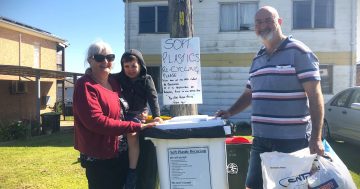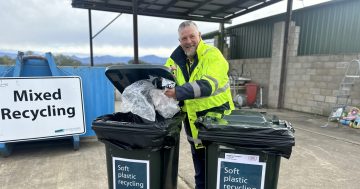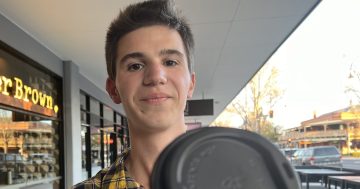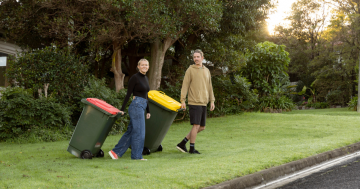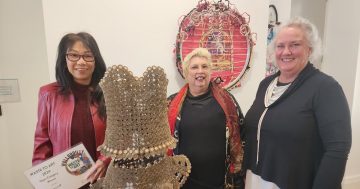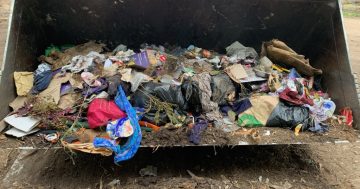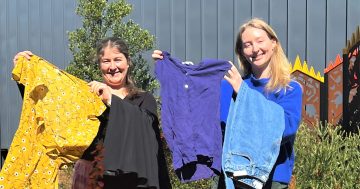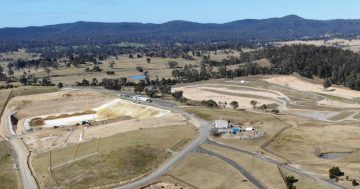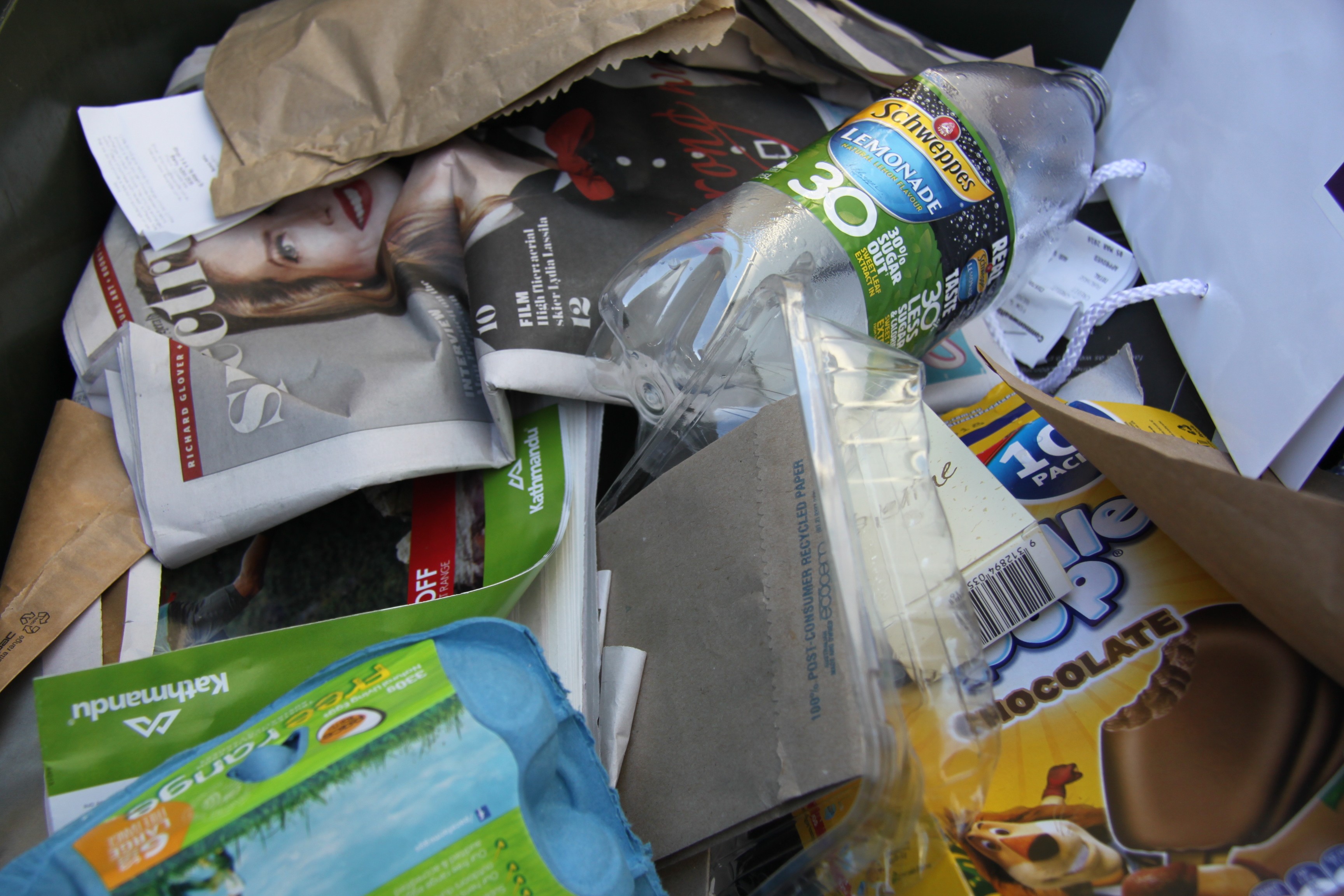
Recycling up close. Source: Eurobodalla Shire Council
‘Head garbos’ across the region have welcomed the supermarket ban on light weight plastic bags but are looking to new opportunities and challenges in their ever present ‘war on waste’.
Woolworths and Coles were tripping over themselves in announcing the news last week, both committing to a phase out of single use bags over the next 12 months.
Shoppers will be asked to bring their own bags or be charged 15 cents for a heavier weight, reusable plastic bag.
“This will significantly change the number of bags going to any landfill or transfer station,” says Mandy Thurling, Rescouse and Waste Manager for Snowy Monaro Regional Council.
In the Eurobodalla, Amanda Jones, Council’s Manager of Waste Services says, “This is great news, keeping problem waste from entering the environment.”
While also welcoming the action, Toby Browne, Waste Services Manager for Bega Valley Shire Council has signaled a need for further change, “It’s a move in the right direction but definitely more needs to be done to reduce packaging and other soft plastic waste.”
Environmental groups have been campaigning for a plastic bag ban for decades, and while some states and towns have imposed restrictions, the ABC TV series “War on Waste” seemed to inject new momentum into the national discussion.
Clean Up Australia estimates six billion plastic bags are handed out every year, with just 4% recycled.
Let loose in the environment they choke, smother, and tangle wildlife.
The supermarket ban doesn’t go far enough according to Clean Up Australia, who continue to lobby the Premiers of New South Walse, Victoria, and Western Australia for an out right ban.
“Hopefully more commercial premises will come on board and ban the bag,” Ms Thurling from Snowy Monaro says.
Given their ‘last for forever nature’ all three South East councils will have to continue to manage plastic bags and soft plastics into the future.
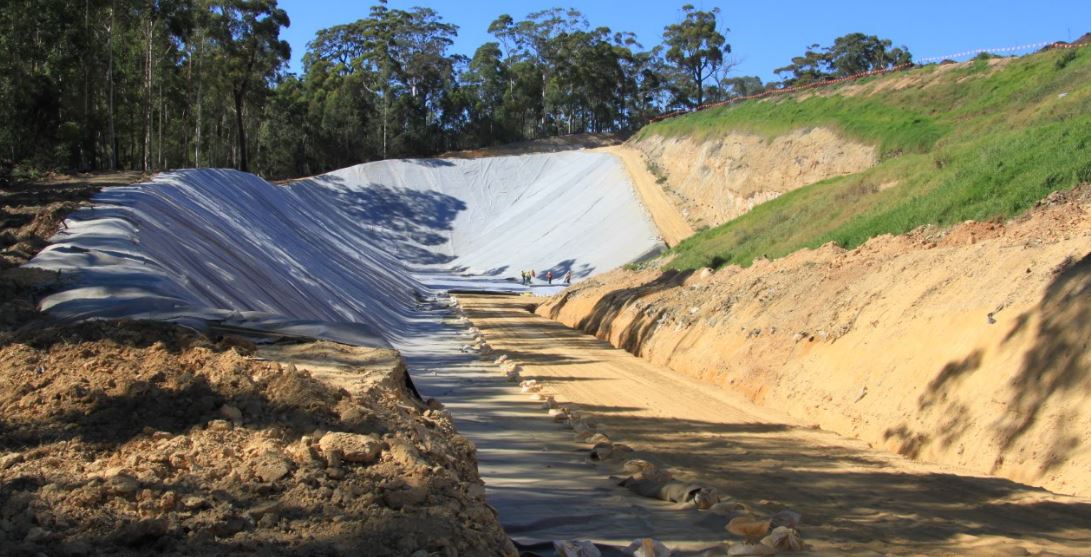
A new landfill cell at the Brou waste facility. Source: Eurobodalla Shire Council.
Apart from taking up tip space, the Eurobodalla’s Amanda Jones says, “Plastic bags at landfill sites get caught by the wind and need to be managed by catching them in litter fences and manual litter picking.”
Toby Brown is frustrated by plastic bag contamination of other waste streams at his Bega Valley facilities.
“When they contaminate recycling and organic waste streams, they must be manually removed,” he says.
With that Amanda Jones jumps in.
“Please don’t put your recycling in plastic bags!” she says.
“The bags don’t always fall open to allow recyclables to be sorted.”
The recent introduction of REDcyle bins at Coles supermarkets in Bega, Eden, Batemans Bay, Ulladulla, and Cooma is part of the equation Mandy Thurling is hoping locals might take up.
REDcycle bins not only take plastic bags but the soft plastic wrapping and packaging many products come smothered in.
REDcycle askes you to do the scrunch test, “If it’s soft plastic and can be crunched into a ball, it can be placed into a REDcycle drop off bin,” their website says.
The material collected is transformed into a range of products including street furniture, decking, and bollards by Replas.
“Council is always looking at the next step in reducing waste to landfill, this could be by reducing all soft plastics and finding alternate recycling avenues for this material,” Ms Thurling from Snowy Monaro says.
In the Eurobodalla, where Council runs their own recycling facility the ‘war on waste’ is reaching new heights.
Crushed waste glass is starting to be used instead of quarried sand in road construction projects.
The sand substitute has just been tested in Murray Street, Moruya where 63 tonnes of the local product was used to install new drainage culverts and reconstruct the road.
“The crushed glass has proven to be a viable product to replace sand in concrete mixes,” Council’s Works Manager, Tony Swallow says.
“It does need to be treated differently to bedding sand but our crews are happy with the performance,” he says.
Around 30 tonnes of sand like substance is produced each week at the Materials Recycling Facility in Moruya; glass represents 40% of the 5,200 tonnes of recyclables collected in the Eurobodalla each year.
“The savings to our environment and Council’s materials budget are significant,” Mr Swallow says.
Polystyrene is the other win in the Eurobodalla’s waste war.
Known for making a mighty mess, up until now polystyrene had taken up valuable landfill space at Surf Beach and Brou.
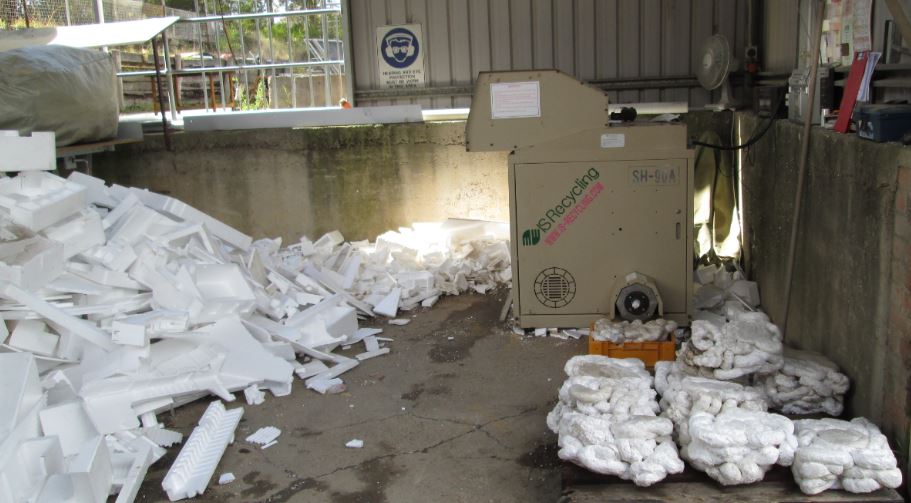
The polystyrene thermal compaction machine at the Surf Beach waste facility. Source: Eurobodalla Shire Council
With a $30,000 grant from the Environmental Protection Authority, Council has installed a thermal compaction machine at its Surf Beach facility.
“The process reduces the volume and turns polystyrene into a hard white substance,” Mr Swallow explains.
“Our contractor is shipping it to China where the material is made into items like picture frames.
“What has made this such a success is that we have supplied local businesses that have a lot of polystyrene packaging with metal frames and wool bales to easily collect the material,” Mr Swallow says.
Council estimates the move will save them $100,000 worth of landfill space each year, with other savings spinning off to local electronic businesses and supermarkets in reduced waste disposal fees.
Bega Valley Shire is looking to do more with waste and is currently developing a waste strategy.
“Our key areas are likely to be addressing food waste recycling and improving local economic opportunity in recycling and resource recovery,” Mr Browne says.
“It’s great to see business making meaningful change in response to community concern. Change creates opportunities.”
At the start of July, Snowy Monaro Regional Council introduced a fully commingled recycling service for the Cooma kerbside collection area
“This allows locals to place recyclable items in the yellow lidded recycling bin,” Mandy Thurling says.
“There is no longer a need to separate paper and cardboard into the black crate.”
Council is now considering giving households a larger capacity recycling bin – more room to recycle.
The action, appetite, and ideas that swirl in this discussion points us in the right direction and into a better position to win the ‘war on waste’ locally.
*Thank you to About Regional member Tim Holt for his contribution to local story telling.
Disclaimer: Author is part-time media officer for Bega Valley Shire Council






